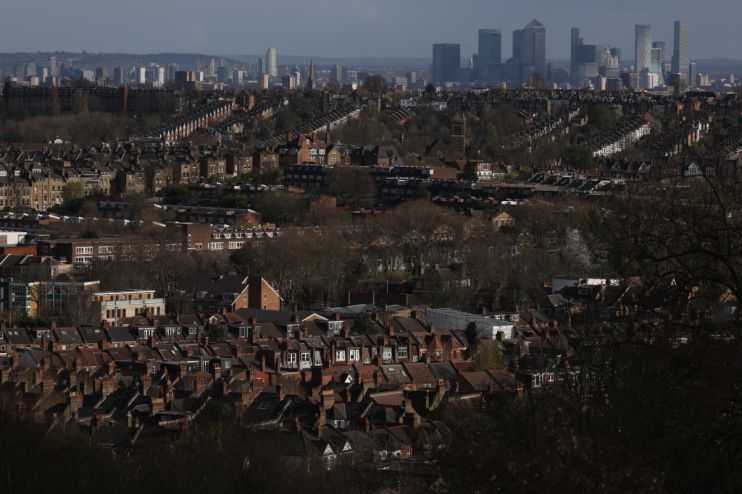FTSE 100 close: Barclays and NatWest rise on London index as stalling house prices knock builders

London’s FTSE 100 kick started a fresh week down today, with Britain’s biggest home builders sliding after new figures showed house price growth has stalled.
The capital’s premier index nudged 0.18 per cent lower to 7,764.10 points, while the domestically-focused mid-cap FTSE 250 index, which is more aligned with the health of the UK economy, lost 0.9 per cent to close at 19,277.04 points.
Lenders were among the top risers on the FTSE 100 during opening exchanges on what is another shortened trading week in the CIty due to the extra bank holiday to celebrate King Charles’ coronation.
Barclays added 1.41 per cent, while partly taxpayer-owned NatWest climbed 1.54 per cent, hoisting both toward the premier index’s summit. That surge ran out of steam in the afternoon, with the pair closing up around 0.2 per cent and 0.8 per cent respectively.
Markets reckon the Bank of England will back a 25 basis point interest rate increase on Thursday, sending them to 4.5 per cent, the highest level since 2008.
That could boost banks, who typically benefit from a higher interest rate environment as it allows them to charge more for loans.
Holding back the FTSE 100 were Britain’s biggest house builders, pushed lower by investors ditching their shares after new figures from lender Halifax revealed house price growth slumped to its lowest annual rate in a decade.
British Land, Land Securities, Berkeley Group, Barratt Developments and Persimmon all shed more than two per cent to trade near the bottom of the FTSE 100.
“While the overall market remains sluggish, there are pockets of outperformance with new-build prices and first-time buyers remaining resilient, partly because of soaring rental costs,” Victoria Scholar, head of investment at interactive investor, said.
The Bank will heap more pressure on the housing market if it decides to back another rate rise this week.
The pound weakened marginally against the US dollar, peeling back some of its recent gains that have pushed it to its highest level against the greenback in over a year.
Oil prices extended their steep descent in recent weeks, dropping nearly two per cent. Traders are concerned central banks will suck demand out of the global economy via their aggressive rate rises.